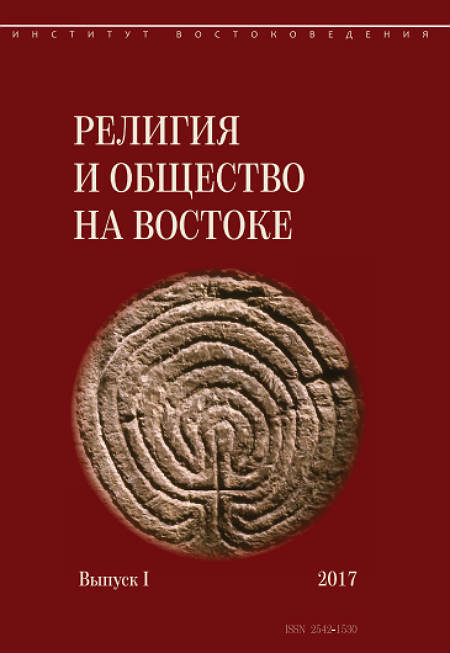Religion and Society in the East
The periodical of the Institute of Oriental Studies, Russian Academy of Sciences. ISSN 2542-1530
Issues
Saudi Arabia: “Religious State” or “State’s Religion”?
Religiia i obshchestvo na Vostoke, Issue I (2017), p. 7-50.
The article describes questions connected with the process of secularization in Saudi Arabia as a result of its continues modernization. The author is analyzing relationship between a ruling dynasty, representing by Ibn Saud – the founder of modern Saudi state and their sons, which replaced him on the throne, and the leading family of Ulama corps – Al al-Sheikh – descendants of Mohammed Ibn Abd al-Wahhab, the founder of Wahhabi version of Hanbali legal schools of Islam, which alliance consists the base of local political system. This alliance between two main political actors do not signify, as it indicated in the article, an absence of political contradictions between them, which are caused by difference in understanding of political goals that should be achieve using this alliance. Contradictions in understanding resulted in “conflicting interrelations” of both sides which influence the process of secularization.
The article emphasizes that the development of secularization process is not only the increasing control of state under more important spheres of socio-political life and limitation of Ulama activity by religious practice, but also the etatization of religion. In this connection the author is analyzing the real facts demonstrating the regime’s limitation of Ulama involvement in political and social life and as well its actions directed to support this alliance between the dynasty and Ulama in the cases when it was demanded by the necessity to maintain stability and territorial integrity of the state. These actions of Saudi political establishment are based on the support of “education class”, which is going to become a third actor of political process and actively cooperates with the power through the al-Shura Council, business associations, Anticorruption Committee and organizations of Human rights protections in solution of the most significant social problems as woman’s emancipation and limitation of responsibility of the Committee for the Propagation of Virtue and the Elimination of Sin.
The article is analyzing the transformation of Saudi historical narrative, which emphasizes the leading role of Ibn Saud in the relations with Ulama. The review of these relations is in the interests of the state and its policy directed to secularization, which prepares the base for transformation of Wahhabi version of Hanbali legal school to moderate Salafi movement, which practice is included concepts of other Sunni legal schools.
Keywords: Saudi Arabia, Saudi ruling dynasty, Ibn Saud, Wahhabism, Muhammad bin Abd al-Wahhab, Hanbali School of jurisprudence, Secularization, Salafism
Volume: 7-50

